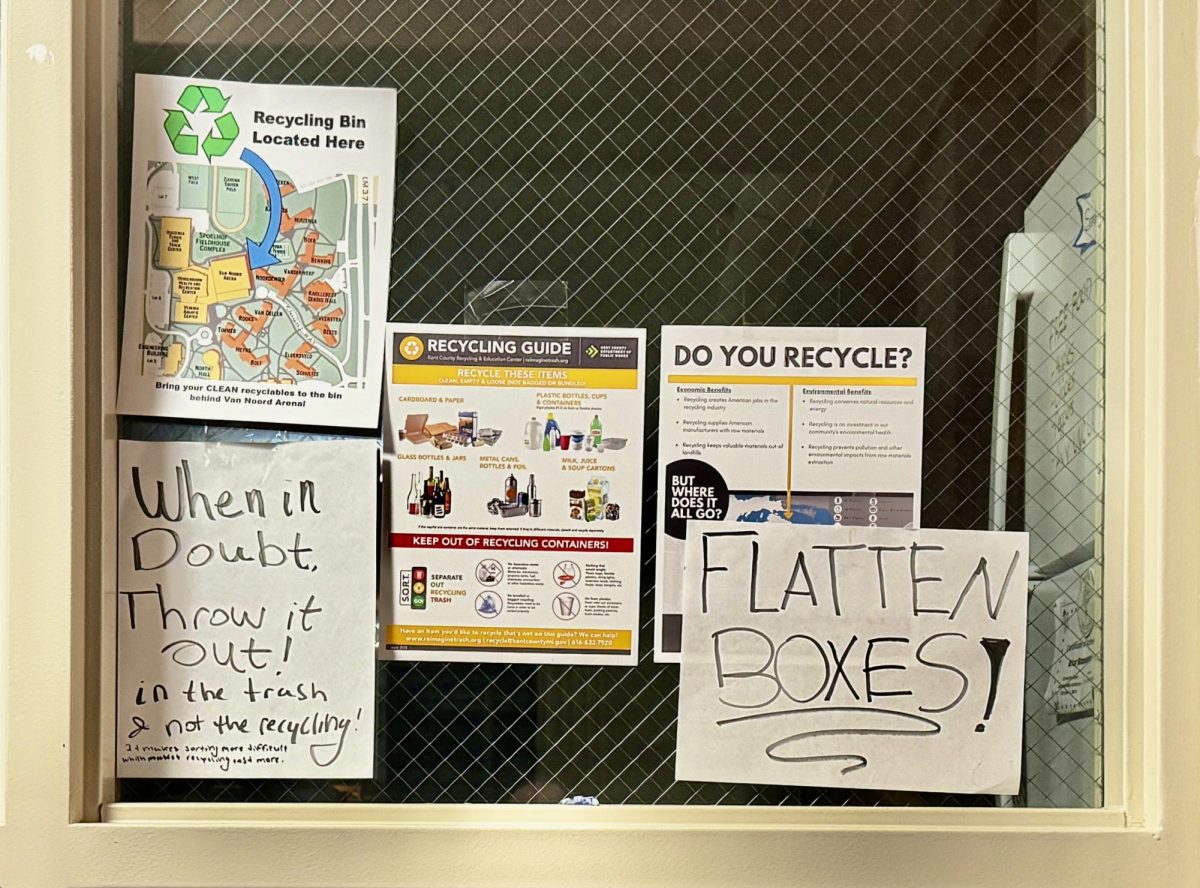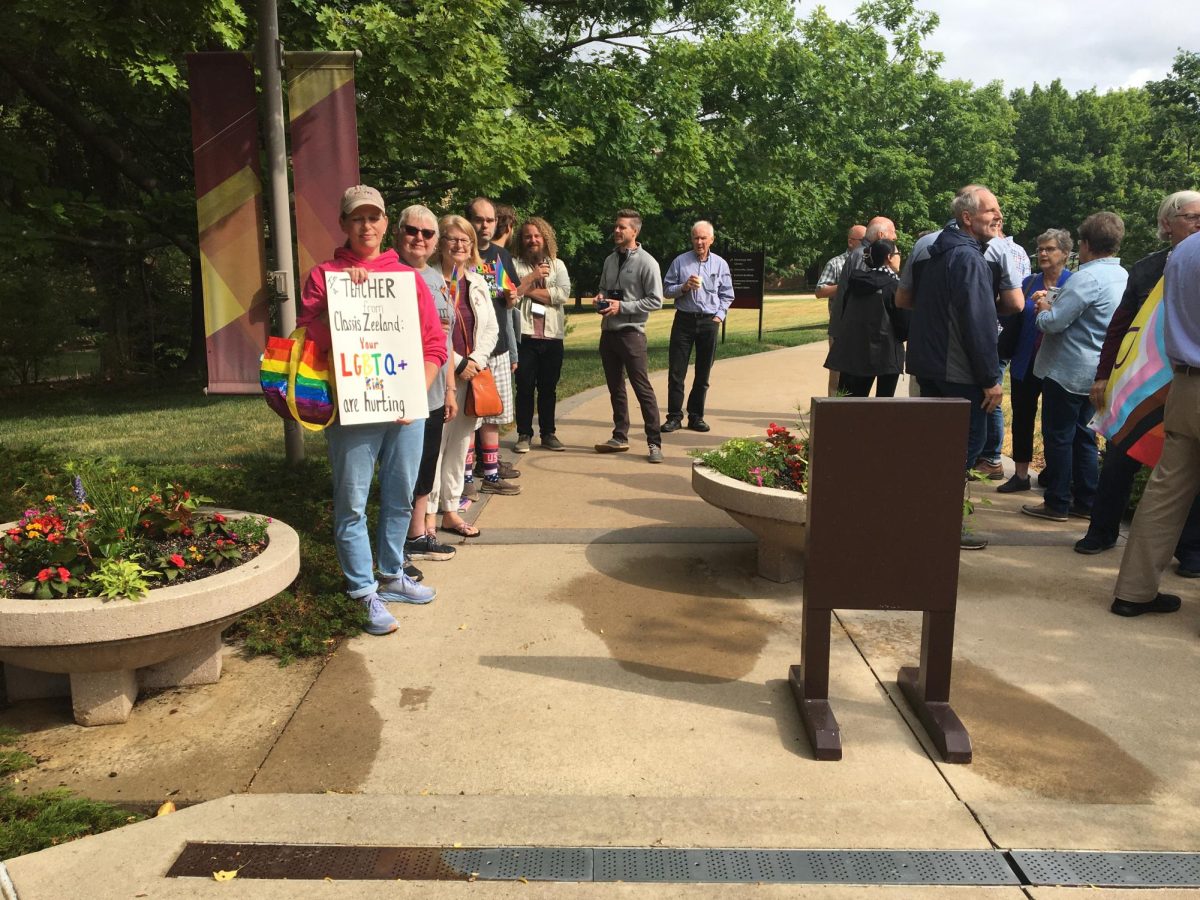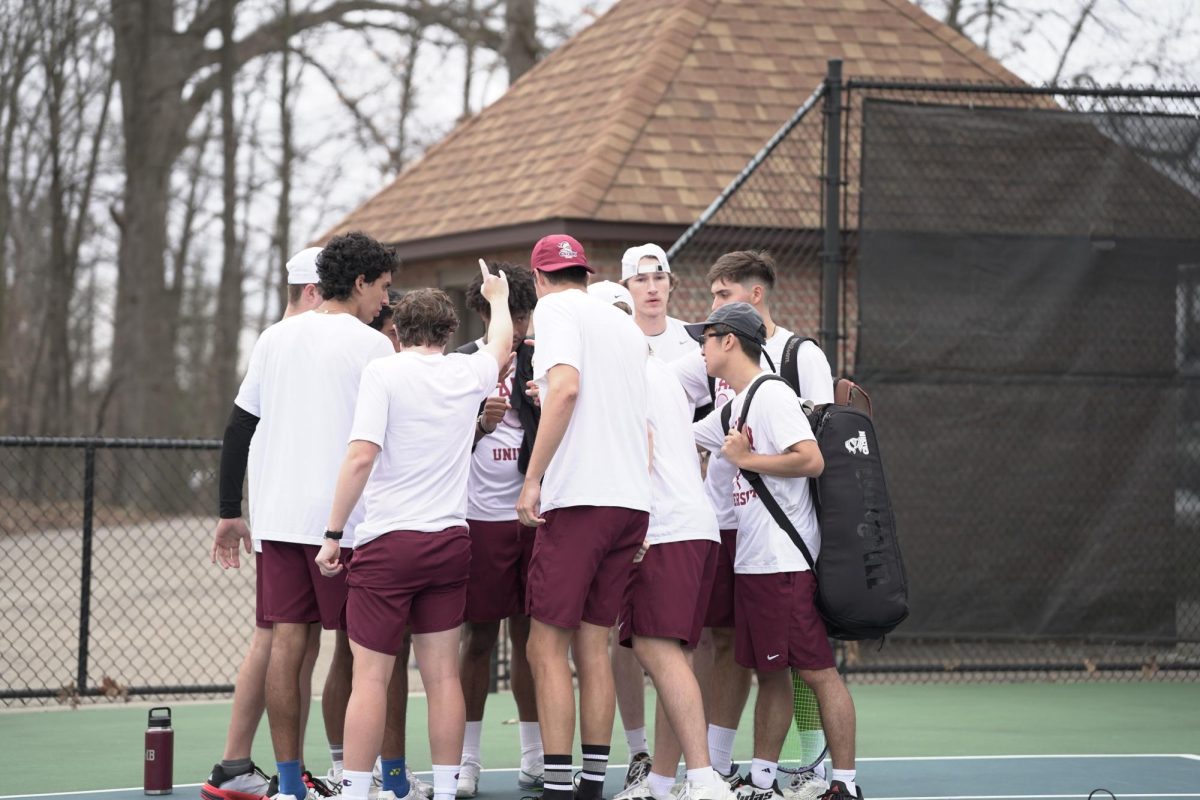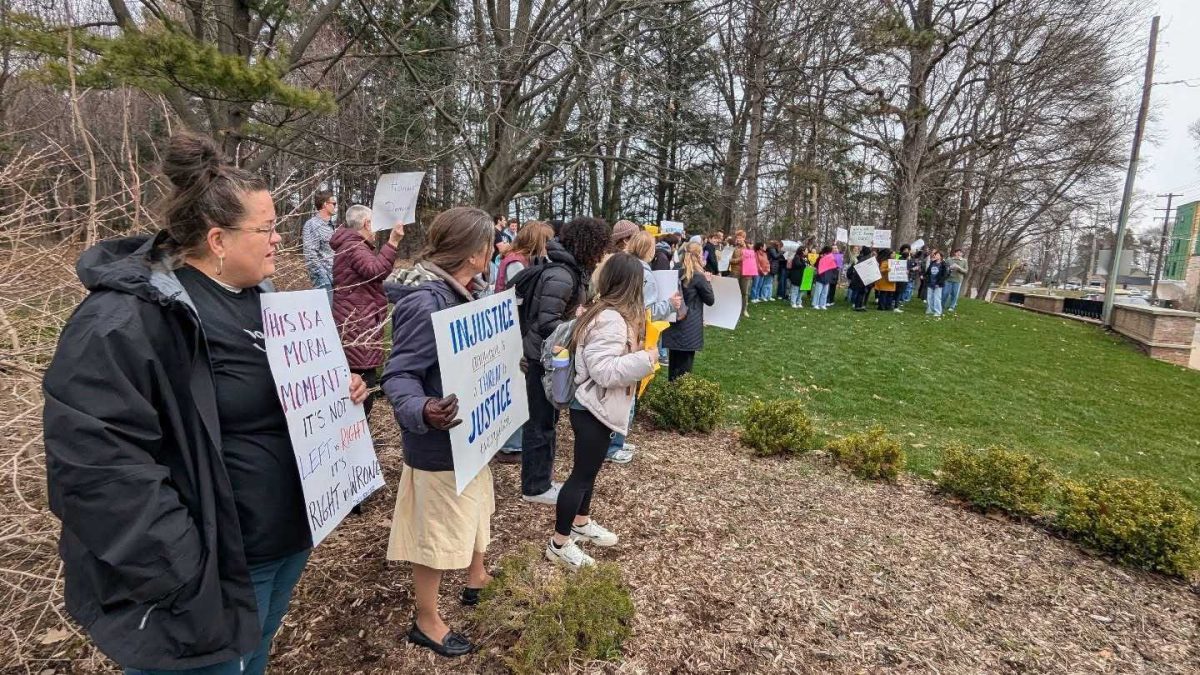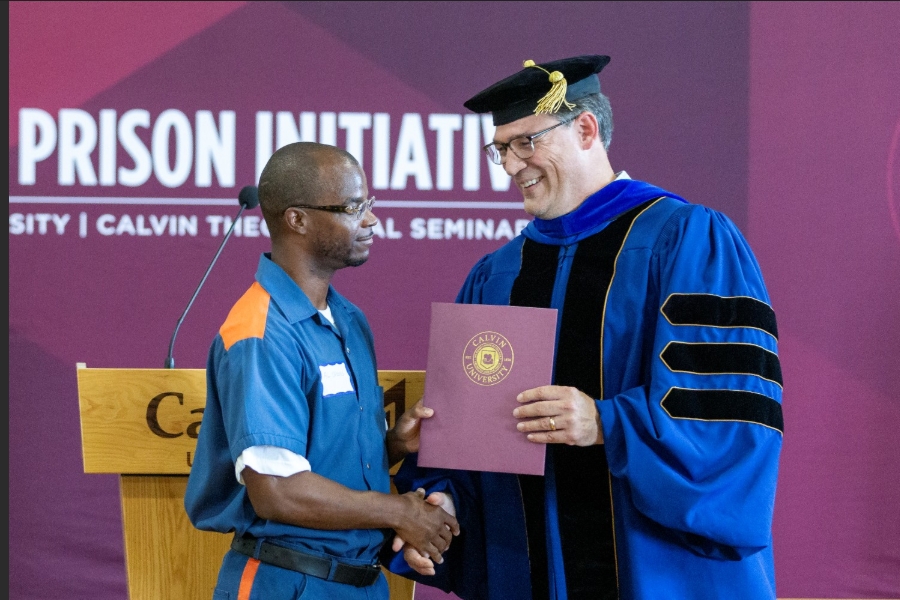Recycling on Calvin University’s campus has been a challenge for years, and students are speaking up about the lack of accessible bins. Maia Peterson, a freshman environmental science major, expressed her concern, saying, “I think the biggest problem is that there aren’t recycling bins in classrooms, as that is a primary place where students get a lot of paper that they might not want, and then people default to putting it in garbage bins because it’s easier.”
Peterson’s concerns are shared by sophomore engineering student LukeAaron Ross. “There have been occasions where I have misprinted something and have ten copies of paper that are useless to me, and there is no way to recycle any of these papers, so I just end up throwing out stacks of papers,” Ross said.
According to Jack Klop, the pandemic severely disrupted Calvin’s recycling program. Prior to the COVID-19 pandemic, the university had a fully functional recycling system in place. However, in the wake of the pandemic, recycling bins were removed to reduce the potential for virus transmission. As the pandemic subsided and the university reopened, the process of reinstalling the recycling program was stalled by staffing issues with Calvin’s then-facilities contractor National Management Resource Company (NMRC), which Calvin cut ties with in August 2022 over service quality concerns. Though recycling has returned to campus, the program continues to face numerous challenges, including limited funding and staff.
One major obstacle is that the infrastructure for waste disposal on campus isn’t accessible enough for students. The few existing recycling bins are difficult to maintain, and students in dorms must take their recycling to the side of the Fieldhouse to dispose of it. Klop describes the task as “a convoluted and confusing journey” for students who already have busy schedules. Despite having all of the necessary facilities to recycle, the lack of resources and staff makes it difficult to provide a consistent and easily accessible recycling service across campus.
Klop is a strong advocate for better recycling options on campus, particularly in light of the Christian call to stewardship. “Recycling is part of our responsibility to care for God’s creation,” said Klop, emphasizing that sustainability should be integral to Calvin’s mission. He also acknowledges that there is a genuine interest and demand from the student body to have access to recycling bins around campus. “Having recycling bins brings me joy. I find the bins beautiful because they represent sustainability in a tangible way,” he said.
One recent effort to improve the recycling program came from a group led by freshman senator Maria Martin Diaz, who presented a proposal to the student senate for funding to install five to seven new recycling bins across campus. The proposal estimated that it would cost $4,370 for seven new sets of waste disposal bins (garbage and recycling bins) to be placed around campus before the second semester. Unfortunately, Maria’s team was not selected. Instead, the funding went toward gym improvements, a decision that disappointed the sustainability community.
“I think this was definitely a mistake from the student senate,” Klop commented on the decision. “Recycling bins around campus are what we need most right now,” Diaz, a Spaniard, expressed her frustration by saying, “In Spain, we have a very strong culture of recycling.” Observing American culture, Maria noted that “people don’t have much awareness or consciousness about the issue of disposing trash in the same place,” which motivated her to push for better recycling infrastructure on campus.
Despite setbacks, both Klop and Diaz remain committed to improving recycling at Calvin. They emphasize the importance of student involvement and advocacy in pushing for change. “Sustainability is a beautiful thing,” Klop said. “We are stewards of this area and space that we get to call home, and we are lucky here in Grand Rapids, Michigan, in such a beautiful environment.”




